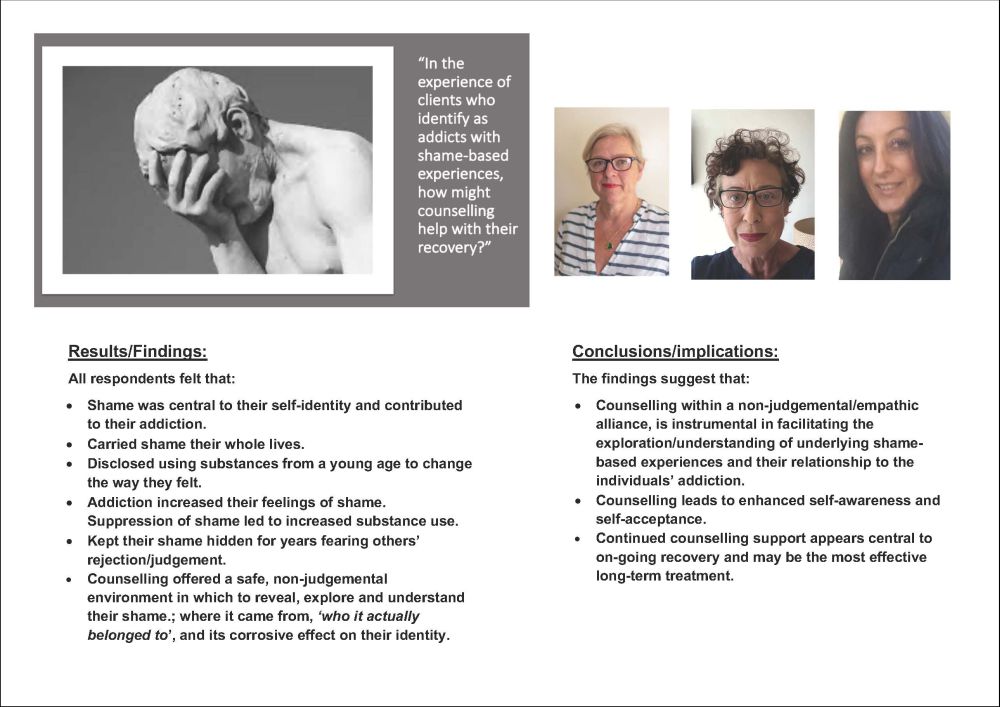
Aims or purpose
The research aimed to identify the effect shame-based experiences had on addicts in recovery and the impact counselling had on their recovery process. The research purpose is to have a better understanding of how counselling might help clients recovering from addiction.
Design and methodology
Three respondents self-identifying as recovering addicts with shame-based experiences, who have undergone counselling, were audio-recorded during semi-structured interviews. The resulting data was thematically analysed informed by phenomenological principles (Braun and Clarke, 2012).
Ethical approval
Submission was made to the researchers’ College Ethics Board and was approved. Respondents were offered six no-fee counselling sessions should issues arise from their participation in the research, which was conducted according to BACP guidelines for ethical research in counselling and psychotherapy (Mitchels, 2018).
Results and findings
Shame was central to all the respondents’ self-identity and all felt their shame-based experiences contributed to their addiction. They also felt they had carried shame their whole lives; tracing this back to experiences in childhood. All participants disclosed using substances from a young age to change the way they felt. Over time active addiction increased their feelings of shame which increased their need to supress these feelings by using more substances. Respondents had kept their shame hidden for years fearing others’ rejection/judgement. In recovery, counselling, alongside 12 Step Fellowship membership, had offered these clients a safe, non-judgemental environment in which to reveal, explore and understand their shame; where it came from, ‘who it actually belonged to’, and its corrosive effect on their identity. All respondents found counselling to be cathartic and found as they spoke their truth it ‘lightened their shameful load’.
Research limitations
Due to the limited number of respondents, it might prove difficult to generalize the research findings (McLeod, 2003).
Conclusions and implications
It seems, when counselling is offered, particularly within a non-judgemental/empathic alliance, the process is instrumental in facilitating the exploration/understanding of underlying shame-based experiences and their relationship to an individuals’ addiction. This appears to lead to enhanced self-awareness and self-acceptance. Continued support appears central to on-going recovery and counselling, in conjunction with other support such as 12 Step Fellowship membership, may be the most effective treatment in the long-term maintenance of recovery for this client-group.
References
Braun, V. and Clarke, V. (2012) ‘Thematic Analysis’, APA Handbook of Research Methods in Psychology: Vol.2. Research Designs.
Cooper, H. (Editor in Chief) pp. 57-71. DOI: 10.1037/13620-004 (Accessed: 19 September 2019)
Mitchels, B. (2018) Ethical Guidelines for Research in the Counselling Professions. Leicestershire: BACP
McLeod, J. (2003) Doing Counselling Research, 2nd Edition, London: SAGE Publications Ltd
Views expressed in this article are the views of the writer and not necessarily the views of BACP. Publication does not imply endorsement of the writer’s views. Reasonable care has been taken to avoid errors but no liability will be accepted for any errors that may occur.
